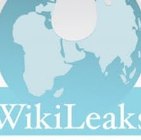8 Feb 2011 | Index Index, minipost
The Guardian’s Moscow correspondent has been expelled from Russia. Luke Harding attempted to re-enter Russia on the weekend, instead his visa was annulled and he was detained in an airport cell for 45 minutes before being returned to the UK on the next available flight. He was told: “For you Russia is closed“. This is thought to be the first incident of this kind since the cold war ended, the Russians are yet to provide an official explanation. Harding’s removal came after he reported on claims made in leaked US diplomatic cables that Russia had become a “virtual Mafia state” under Vladimir Putin, he also also co-authored Wikileaks: Inside Julian Assange’s War on Secrecy.
5 Feb 2011 | News

It has been reported that an “accredited” journalist for Wikileaks, Israel Shamir, met with Uladzimri Makei, the Head of the Presidential administration in Belarus. Subsequently, it was reported in the Belarus Telegraf that a state newspaper would be publishing documents about the Belarusian opposition.
Wikileaks has always maintained it takes care to ensure that names of political activists are redacted from cables before publication on its website. Index on Censorship is concerned that some of the Wikileaks cables relating to Belarus that have not appeared on the main Wikileaks website are now in the public domain.
(more…)
1 Feb 2011 | Uncategorized
Financial Times editor Lionel Barber’s Hugh Cudlipp Lecture, delivered last night, managed to fit the many and varied dilemmas facing the UK press into a short and entertaining speech.
It is pretty much accepted by anyone in possession of a press card that print media is in decline; but Barber points out that this a very much a western world phenomenon. In some markets, print is thriving:
These figures largely reflect a western disease: the virus has yet to strike the world’s biggest countries, China and India; and it is not true of many emerging countries such as Brazil, where the appetite for news in all forms is growing fast.
Since 2005, for example, the number of paid-for Indian daily newspaper titles has surged to 2,700, according to the World Association of Newspapers. The circulation of Hindi papers rose from less than 8m in the early 1990s to more than 25m last year. Meanwhile, the total circulation of Brazilian newspapers has expanded by 1m over the past decade to 8.2m, with steamy tabloids among the biggest beneficiaries.
Barber goes on to question why US and UK newspapers are suffering. Could it be because the press is a little too close to those it is meant to scrutinise?
In hindsight, Watergate was a curse as well as a blessing for American journalism. The courageous reporting of the Post and the New York Times – coupled with the favourable Supreme Court rulings on publication of the Pentagon Papers – were landmarks for the interpretation of First Amendment rights and the freedom of the press. But they also encouraged the cult of celebrity and media self-absorption.
In the words of Eric Alterman, as reporters became more sophisticated and respected, the top rank came to be regarded as the social equal of those people they were reporting on such as Senators and CEOs. Some came to identify more closely with their subjects rather than with their readers. In short, they joined the Establishment.
Does this apply to Britain?
[…]I believe we have entered our own period of media self-absorption, driven partly by our industry’s financial difficulties. Second, we have in recent years witnessed if not exactly a merger of the media and political class, certainly an increasingly intertwined relationship which, I suspect, does not necessarily serve the interest of either.
Today, many members of the political elite in Britain have all worked in or with the media industry. David Cameron worked in a commercial TV company. Jeremy Hunt ran a publishing business. Michael Gove was a newspaper columnist. Boris Johnson was a magazine editor (and still writes a weekly newspaper column). Ed Miliband was a TV researcher. And Ed Balls was an editorial writer for the FT.
This new social network in Britain may be more informal than formal, but it still comes across as far too cosy. Arguably, our elected representatives have become a tad too respectful toward broadcast and print media.
Many would argue that the web has broken up the influence of this network, with the exploits of Wikileaks in 2010 blowing traditional media out of the water. But Barber, quoting New York Times editor Bill Keller, questions this narrative:
Keller’s observation that Assange was primarily a source is highly pertinent. That plain fact should tamp down the fevered debate over whether WikiLeaks spells either the end of diplomacy or a new age of journalism. Like Keller, I believe it does neither.
Barber is also quite scathing on the News of the World phone-hacking scandal:
The suspicion must remain that News Corporation assumed that it enjoyed enough power and influence in Britain to make the phone hacking controversy go away.
Of interest to Index readers is this line, which will have to be borne in mind as the government’s defamation bill comes before parliament:
Many MPs are itching to retaliate for the humiliation of the expenses scandal, but statutory regulation would be a grave step in the wrong direction.
Press freedom is woven into the fabric of our nation. We do not want to go down the same road as countries such as Argentina, Hungary and South Africa which have adopted or are about to adopt new laws curbing press freedom. Democracy, it should be remembered, is not just about holding elections.
There is a case for rebalancing the right to privacy and the protections offered by Britain’s overly onerous libel laws which are weighted in favour of the well-heeled plaintiff. But Westminster should also tread carefully with regard to privacy, lest the rich and famous, on and off the football field, become untouchable.
READ THE FULL TEXT HERE
20 Jan 2011 | News
 Tony Blair’s appearance at the Iraq inquiry is a test of the competing principles of free expression and confidentiality. John Kampfner asks who should decide what the public hears?
Tony Blair’s appearance at the Iraq inquiry is a test of the competing principles of free expression and confidentiality. John Kampfner asks who should decide what the public hears?
Tony Blair would not appreciate being likened to Julian Assange. The feeling would, I am sure, be entirely mutual. Yet there is a link of sorts between these two figures, so controversial in their very different ways. It revolves around the notion of confidentiality.
The lead-up to the former prime minister’s second appearance before the Iraq enquiry has been dominated by the issue of private correspondence. The refusal by the cabinet secretary, Sir Gus O’Donnell, to accede to the request of the committee chairman, Sir John Chilcot, to release the full musings of Blair and ex-president George Bush is based around a question similar to the one relating to the industrial dumping of US State Department documents. When are the musings of individual officials or politicians public documents and when are they private?
In both cases the competing principles of free expression and confidence stumble on each other, head to head. Assange and his allies argue their case mainly around public interest. The world, he insists, should know all the dirty deeds of dastardly diplomats. A more convincing argument in his favour might be that no serious organisation could remotely hope to keep a single email secret if circulated to 2.5m people, as was apparently the case with the US diplomatic service.
As for the Blair/Bush love-in, the case for secrecy is undermined by Blair’s own decision to publish some of the discussions in his memoirs. Furthermore, written memos between world leaders could surely not qualify as “private”. Telephone calls, presumably yes, but not the written word.
As the Daily Telegraph commented in a leader article this week:
The public deserves to get the fullest possible account of why this country went to war on the basis of what turned out to be misleading intelligence. For many, this remains the rawest of issues; if we are ever to put it behind us, the inquiry must be seen to be as thorough and open as possible. Reaching sensible conclusions almost eight years after the invasion began will be difficult enough without the inquiry being fettered in this way.
In the spirit, we are sure, of free expression, a furious Chilcot decided to publish his exchange of letters with O’Donnell. The committee chairman suggests, in quintessential mandarin style, that he would be “disappointed” if Blair proved less forthcoming in his evidence than in his book.
Otherwise, the Telegraph concludes, “it will appear that Mr Blair is happy to breach the confidentiality of office for a lucrative book deal, but not to inform the British public of the process that led him to send our troops to war”.
John Kampfner is the chief executive of Index on Censorship


 Tony Blair’s appearance at the Iraq inquiry is a test of the competing principles of free expression and confidentiality. John Kampfner asks who should decide what the public hears?
Tony Blair’s appearance at the Iraq inquiry is a test of the competing principles of free expression and confidentiality. John Kampfner asks who should decide what the public hears?